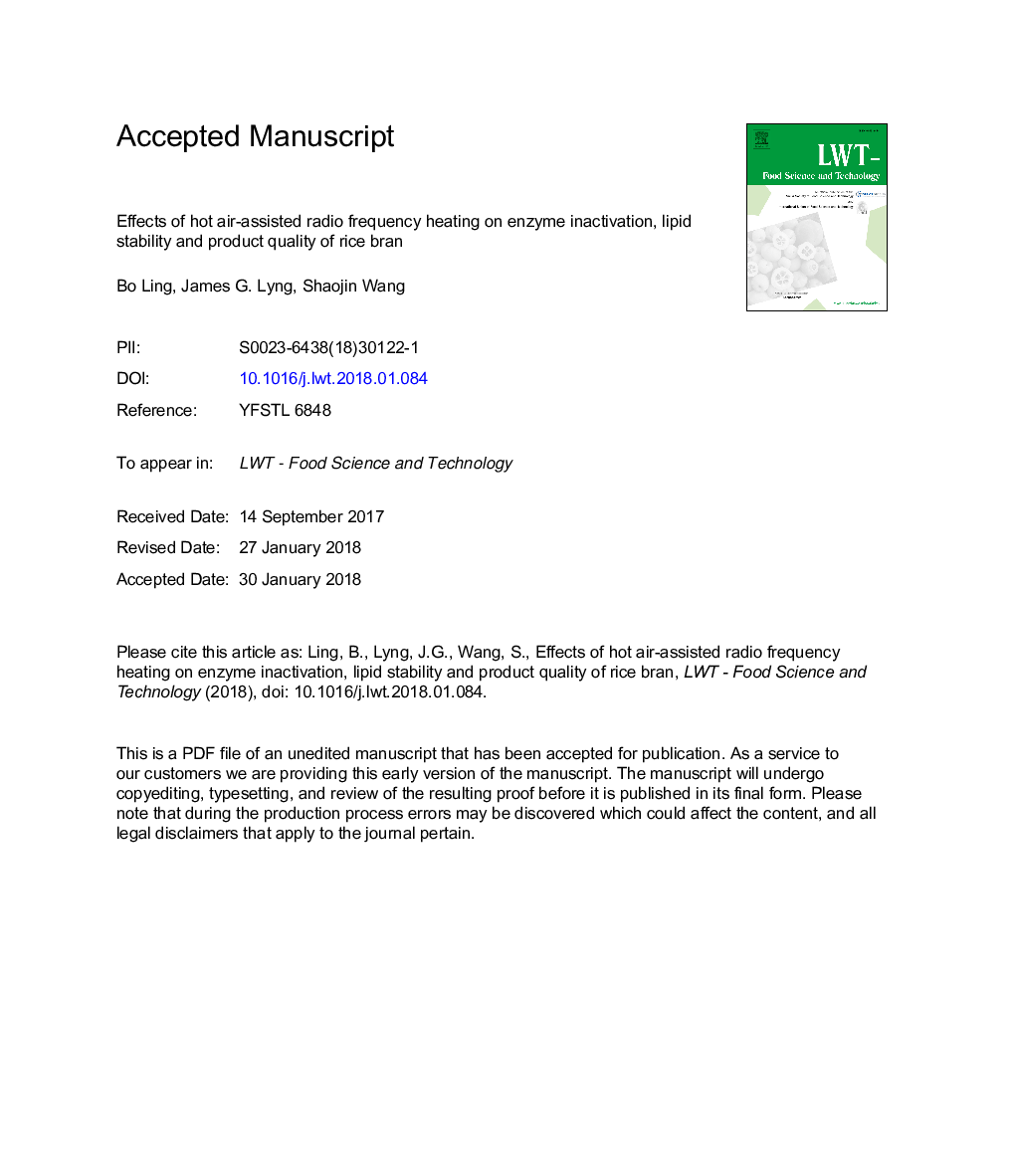| کد مقاله | کد نشریه | سال انتشار | مقاله انگلیسی | نسخه تمام متن |
|---|---|---|---|---|
| 8891905 | 1628508 | 2018 | 30 صفحه PDF | دانلود رایگان |
عنوان انگلیسی مقاله ISI
Effects of hot air-assisted radio frequency heating on enzyme inactivation, lipid stability and product quality of rice bran
ترجمه فارسی عنوان
اثر گرمایی فرکانس رادیویی گرم توسط آنزیم غیر فعال شدن، پایداری لیپید و کیفیت محصول سبوس
دانلود مقاله + سفارش ترجمه
دانلود مقاله ISI انگلیسی
رایگان برای ایرانیان
کلمات کلیدی
سبوس برنج، گرمای فرکانس رادیویی با هوای داغ، انعقاد آنزیم، پایداری لیپید، کیفیت،
موضوعات مرتبط
علوم زیستی و بیوفناوری
علوم کشاورزی و بیولوژیک
دانش تغذیه
چکیده انگلیسی
Rice bran (RB) is a valuable by-product of rice milling but highly susceptible to lipid rancidity induced by inherent lipase (LA) and lipoxygenase (LOX) activities. Therefore a stabilization step is required to reduce activities of these enzymes to ensure RB quality. Effects of hot air-assisted radio frequency (HAARF) heating on enzyme inactivation, lipid stability and product quality of RB were investigated. Influence of water activity (aw) in stabilized RB on lipid rancidity during storage was also evaluated. Results showed that average residual LA and LOX activities in RB treated by RF heating at electrode gap of 10â¯cm and to 100â¯Â°C with holding in hot air for 15min decreased to 19.2% and 5.5% of their original values. Free fatty acid content and peroxide value of RB oil extracted samples treated under these conditions remained below acceptable limits even following 60d storage at 35â¯Â°C. The lowest reaction rate for RB rancidity during storage occurred at aw value of 0.241. No significant adverse quality changes in RB were observed immediately following HAARF heating, and subsequent storage stability of RB was also enhanced by HAARF heating. HAARF heating can potentially provide rapid and effective methods for RB stabilization without adverse impact on product quality.
ناشر
Database: Elsevier - ScienceDirect (ساینس دایرکت)
Journal: LWT - Volume 91, May 2018, Pages 453-459
Journal: LWT - Volume 91, May 2018, Pages 453-459
نویسندگان
Bo Ling, James G. Lyng, Shaojin Wang,
